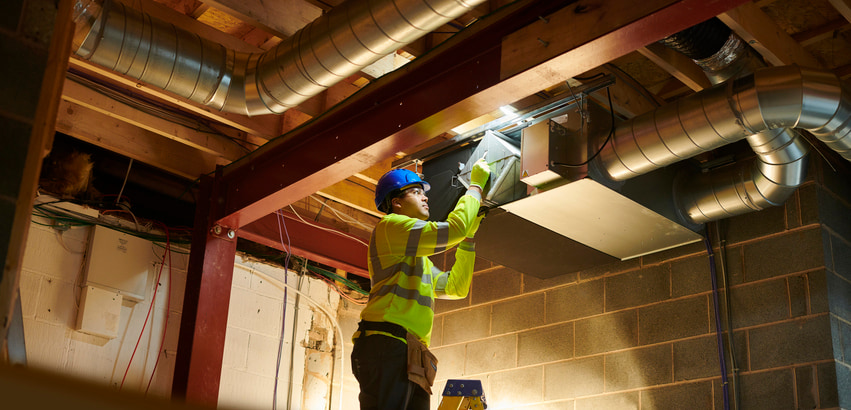
The Effects Of Indoor Air Quality On Performance And Productivity
May 24, 2023
How Indoor Air Quality Impacts Performance and Productivity
In today’s fast-paced world, the importance of maintaining a healthy and productive work environment cannot be overstated. One often-overlooked aspect of workplace wellness is indoor air quality. With many of us spending most of our waking hours indoors, air quality can significantly impact our performance and productivity.
In this blog, we will delve into the connection between indoor air quality and workplace success and discuss ways to improve the air in your office or home workspace to enhance the well-being and efficiency of everyone within it. So, take a deep breath and clear the air on this essential topic.
1. The Effects of Poor Indoor Air Quality on Health
Prolonged exposure to poor indoor air quality can lead to various health issues, both short-term and long-term. Common short-term symptoms include headaches, fatigue, dizziness, and irritation of the eyes, nose, or throat. These symptoms can hinder an individual’s ability to concentrate and perform tasks efficiently. By improving indoor air quality, we can prevent these effects and ensure a more productive work environment.
2. How Indoor Air Quality Impacts Cognitive Function
Recent studies have shown a direct correlation between indoor air quality and cognitive function. Higher levels of indoor air pollutants, such as volatile organic compounds (VOCs) and fine particulate matter, are associated with decreased cognitive performance. This can result in reduced decision-making abilities, problem-solving skills, and overall mental clarity. Ensuring a well-ventilated workspace with clean air can help maintain optimal cognitive function, leading to better performance and productivity.
3. The Role of Ventilation and Filtration Systems
Proper ventilation and air filtration systems play a crucial role in maintaining good indoor air quality. Ventilation systems help dilute indoor air pollutants by bringing in fresh outdoor air, while air filtration systems remove contaminants. Regular maintenance of these systems, including cleaning and replacing filters, is essential for their effectiveness. Investing in high-quality ventilation and filtration systems not only improves indoor air quality but also contributes to increased employee satisfaction and productivity.
4. The Benefits of Indoor Plants for Air Quality
Incorporating indoor plants into your workspace can be an effective and aesthetically pleasing way to improve air quality. Certain plants, such as spider plants, snake plants, and peace lilies, are known for their ability to filter harmful pollutants like benzene, formaldehyde, and trichloroethylene from the air. Additionally, indoor plants can help regulate humidity levels and create a more inviting work environment, leading to increased productivity and well-being.
5. Promoting a Healthy Work Culture
Encouraging a healthy work culture is essential for the overall success of any organization. This includes promoting habits such as regular breaks, physical activity, and proper hydration. Employers can also consider providing air quality monitors and purifiers to ensure a clean working environment. By taking a proactive approach to maintaining good indoor air quality, organizations can foster a healthier, happier, and more productive workforce.
Take Action with ONE SOURCE: Your Partner in Facility Management Solutions
Don’t let poor indoor air quality hinder the success of your business. At ONE SOURCE, located in Wallingford, CT, we are committed to providing businesses with strategic and innovative facility management solutions tailored to their needs.
Reach out to ONE SOURCE today and discover how our comprehensive facility management solutions can help you create the perfect workspace to unlock your business’s full potential.
Recent News

The Ultimate Guide to Facility Management for New Business Owners
May 6, 2025

Spring Readiness: Essential Facility Maintenance Checklist
April 7, 2025

Maximizing Space Utilization in Commercial Properties
February 12, 2025

Keeping Your Commercial Building Healthy: Why Duct Cleaning Matters This Flu Season
January 14, 2025

Budget Planning Assistance: Strategies for Effective Facility Management Cost Control
November 8, 2024

Emergency Preparedness: Facility Management Tips for Fall Storms
September 4, 2024


